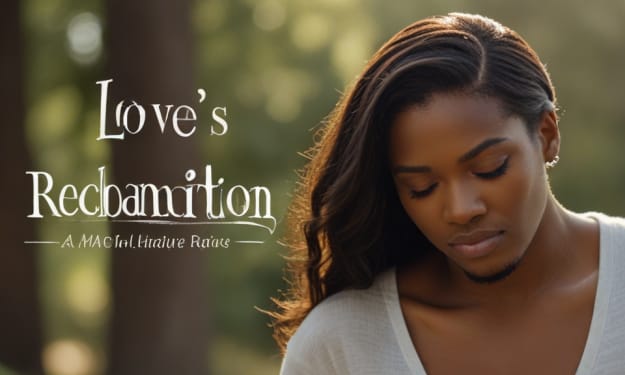Charming or Creepy? The Grand Romantic Gesture
The Piano Man who tried to win his ex back

It was a warm Saturday morning in September 2017.
Luke Howard, a 34-years old musician, was a heartbroken man who decided to win back his ex-girlfriend using a grand romantic gesture.
He wanted to show his ex-girlfriend just how much she meant to him. So, naturally, Luke bought a piano and had it delivered to Bristol's idyllic College Green park. Then he began to play.
The pair had been together for a grand total of four months.
Howard told the Bristol Post that his motivation was to prove his love for his ex-girlfriend and that he was willing to play nonstop until she took him back.
"It may sound whimsical but she completely changed my life," Howard told the newspaper. "My entire world shifted."
Of course, the media jumped on this spectacle, dubbing Luke the "Piano Man" and spreading his message across the English landscape.
However, his ruse backfired horribly, with thousands of people on social media labeling him a "stalker," "sociopath," and "creep," failing to sympathize with his suffering.
The problem with the grand romantic gesture
Watch any popular rom-com, and they will tell you the same story. Breakups are painful, and if you want to win back the love of your life, an over-the-top romantic gesture is the way to go. Such actions may not be realistic or mature on the big screen, but they are undoubtedly entertaining.
The issue is that most of what works in movies only works in movies.
Like the Piano Man, many forget to grasp that most real-life relationships are straightforward - nice but quiet and understated. But real life makes for a boring movie, and if you are spending two hours in a cinema, you want to be immersed in the story and characters, to emotionally join them in their manic ups and cry during their desperate downs.
This is why the grand romantic gesture thrives on the big screen. The protagonist in the movie usually makes this extravagant move, the guy the audience is conditioned to like and root for.
When we watch beloved films such as Love Actually, Say Anything, Sierra Burgess Is a Loser, or Crazy Stupid Love, we are naively invested in the romantic obstacle the protagonist has to overcome. Perhaps the recipient of the protagonist's "love" is skeptical about a relationship with them, or they could be in love with someone else. They might not even be aware that the protagonist is in love with them or even exists. But undoubtedly, by the end of the film, the object of the grand romantic gesture can't help but be swept off their feet when they see the magnitude of the protagonist's affection.
This is, in the end, why the grand romantic gesture is so popular, especially among those who attempt to use it in real life. This form of love gets so powerful that it eliminates the need to be someone worth dating entirely. There's no need to waste time improving yourself or risk rejection because putting in the correct amount of effort will ensure that your passion is recognized.
Of course, many of us realize that these movies are not meant to be blueprints for real life. However, Luke Howard had to learn this the hard way.
Emotional manipulation
What they don't show you in the movies is the pressure the protagonist puts on the object of his affection to give in to his desires. Or the ridiculous amount of money, effort, and time it takes to make the gesture happen.
The pressure and embarrassment that comes with being the center of attention of a judging crowd while someone proclaims his love for her in front of an audience is also not depicted by the filmmakers. What happens, for example, when dozens, if not hundreds, of individuals, are emotionally engaged in the outcome of your relationship?
It's unjust, if not downright manipulative, to place your partner in that situation without their consent.
"Rejecting someone when they propose or apologize can be one of the most emotionally difficult things a person can do. To do that in front of multiple people simply tilts the balance towards the person saying 'yes' when they really want to say 'no.'" - Joshua Klapow, PhD, clinical psychologist
People are neurobiologically concerned with their appearance and how others perceive them. We all want to be thought of as good and respectable by others. This is why most people are afraid of embarrassing themselves or failing in some way when they are in a public setting.
This desire to avoid being judged negatively by others is a significant drive for individuals. Peer pressure, mob mentality, and many other factors demonstrate how people frequently go against their views and instincts to avoid standing out and being rejected.
Saying no to someone's public grand romantic gesture after an elaborate and magnificent presentation that took a lot of time and effort to put up and drew a lot of attention is a great way to earn the ire and dislike of the audience.
Just imagine your significant other proposing to you in front of a mob of strangers. Your answer must be "yes," since otherwise, the scenario will get awkward.
After all, deciding whether or not to accept a marriage proposal or even a first date can be stressful enough in a private setting. But when you throw the public into the mix, you allow everyone to comment on you or your activities. People will pass judgment and certainly have something to say about your answer, whether you say no or yes.
For instance, in 2017, a man proposed to his girlfriend in Fenway Park in front of 30,000 Boston Red Sox fans. The entire crowd was able to see the scene play out on the Jumbotron. Throughout the proposal, the audience can be heard yelling, "Just say yes!"
Talk about pressure!
Unfortunately for the fan, his girlfriend's response was an emphatic no. When it became evident that her decision would not be overturned, the audience turned on the rejected proposer, yelling, "she said no."
Did the Piano Man's mission succeed?
Luke Howard gave up on his grand romantic gesture less than two days after it started. This was partly due to a punch to the head he received early Monday morning and the internet storm he created.
"Yesterday, at around 4am, as I sat in the centre of Bristol playing the piano, I was punched in the head while, as it would now appear, turning myself into the largest fool in the West Country."
At the very least, Howard seemed to have mostly learned the errors of his misguided romantic gesture:
"The social media reaction turned it very quickly into something that would cause the one person I didn't want to hurt embarrassment and pain. That was the last thing in the world I had wanted to happen, so I left.
So to the girl I didn't want to name, whose house I didn't want to sit outside, didn't want to flood with text or emails, I want to sincerely apologize for all of this."
Many were vocal on social media that Howard's very public grand gesture and the Facebook page he created to garner support demonstrated a severe lack of respect for his ex's decision to end their relationship.
While many can sympathize with the heartbreak and pain of being dumped, most of us know to respect their ex's decision, after all, why would making someone feel horrible so they will stay with you seem like a good idea?
Hopefully, Luke Howard and others like him would think twice before engaging in such manipulative behavior.
About the Creator
Chelsea Rose
I never met a problem I couldn't make worst.






Comments
There are no comments for this story
Be the first to respond and start the conversation.